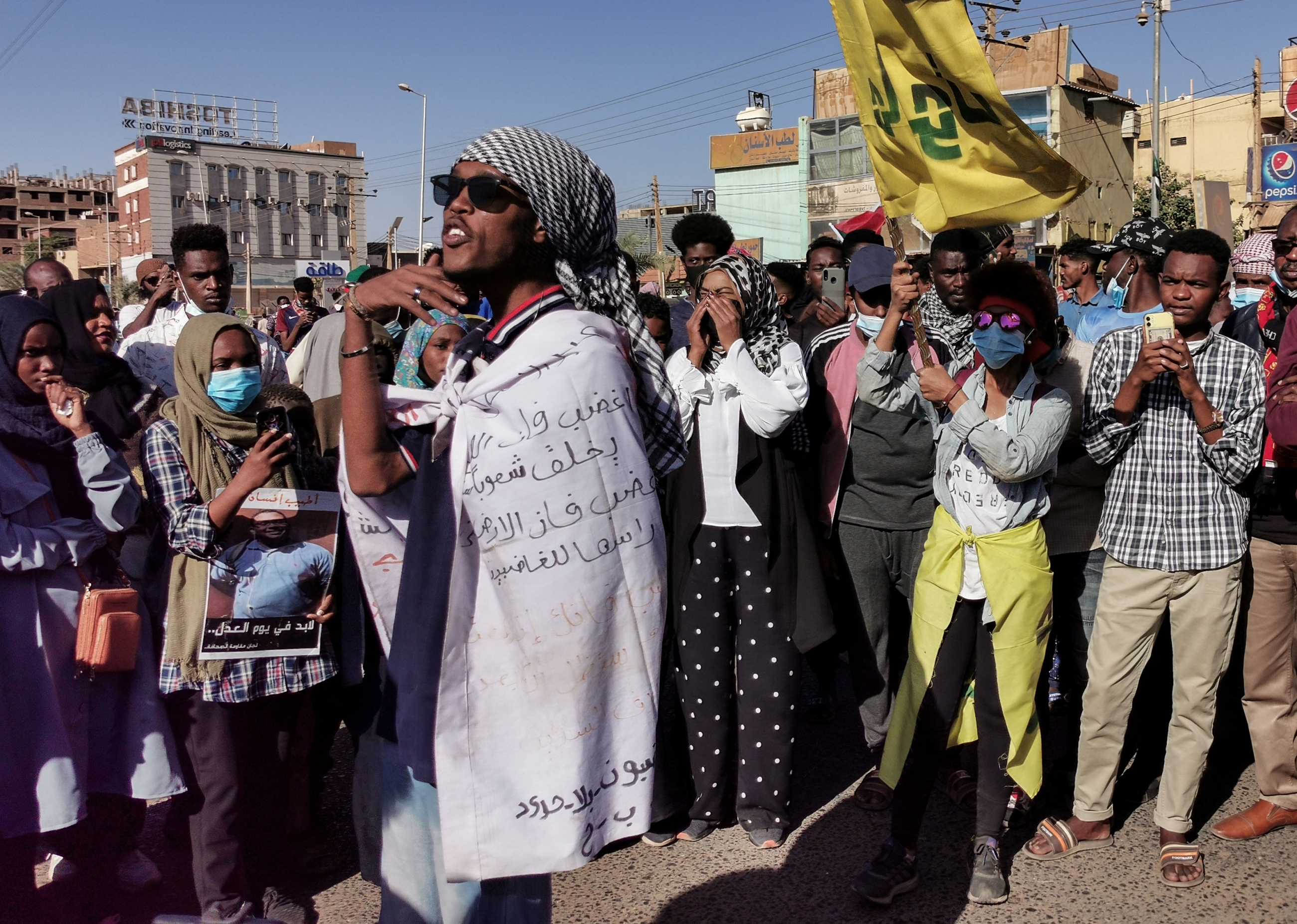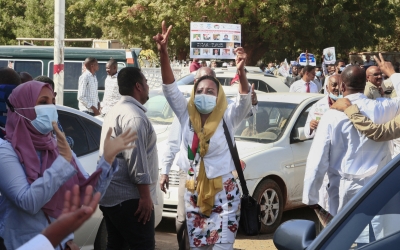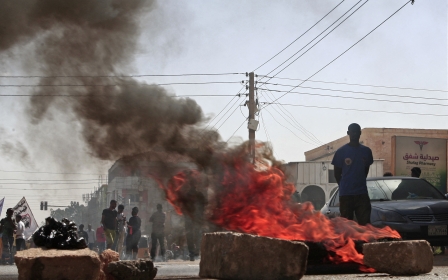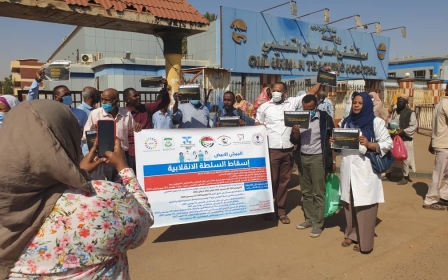US says it will not resume aid to Sudan until civilian government is formed

The United States will continue withholding aid from Sudan that was initially paused after October's military coup, unless there is an end to violence and a civilian-led government is restored, the US embassy in Khartoum has said.
In a statement published on the US embassy's Twitter account on Thursday, Assistant Secretary of State for African Affairs Molly Phee and Special Envoy for the Horn of Africa David Satterfield "underscored that the United States will not resume paused assistance to the Sudanese government absent an end to violence and a restoration of a civilian-led government that reflects the will of the people of Sudan".
Jacqueline Burns, a senior policy analyst with the RAND Corporation and former strategy adviser on Sudan at the US Department of State, told MEE withholding the aid was unlikely to change the military leaders course of action in the near future, but "serves as a signal that Sudan’s government will not be re-welcomed as a full partner or respected member of the international community so long as the military maintains rule".
Phee and Satterfield also condemned the recent use of disproportionate force against protesters and called for transparent and independent investigations into the deaths and injuries that occurred.
New MEE newsletter: Jerusalem Dispatch
Sign up to get the latest insights and analysis on Israel-Palestine, alongside Turkey Unpacked and other MEE newsletters
On Monday, Sudanese security forces shot and killed at least seven protesters in the capital, Khartoum, and injured more than 100, in one of the deadliest days since the military coup, medics said.
According to the Sudan Doctors Committee, at least 72 demonstrators have been killed since the military seized power on 25 October.
Phee and Satterfield said military leaders they met during their visit had expressed their commitment to the country's political transition and agreed to amend the constitutional document governing Sudan's transition to democracy.
The two diplomats said they also made clear to the generals that the US "will consider measures to hold accountable those responsible for failure to move forward", according to the statement.
The US initially froze some $700m in financial assistance to Sudan following the coup, and international bodies such as the World Bank and other international contributors followed suit.
That support was intended to assist the government in its transition to democracy. The US, however, continued with humanitarian funds for non-governmental aid agencies working in the country.
According to the US Agency for International development (USAID), Washington provided Sudan with roughly $567m in aid in 2021, the bulk of it being for humanitarian purposes.
Marina Ottaway, a Middle East Fellow at the Woodrow Wilson Center told MEE she was doubtful using aid as leverage would change the calculus of Sudan's generals.
"Suspending aid or imposing sanctions seems to be the main tool of US policy at this point, but it hasn't shown to be effective," she said. "It shows in many ways the powerlessness of the United States in dealing with Sudan".
The October coup, led by army chief General Abdel Fattah al-Burhan, derailed a power-sharing transition between the military and civilians that had been painstakingly established in the wake of the overthrow of longtime ruler Omar al-Bashir in 2019.
The turmoil has been amplified since Prime Minister Abdalla Hamdok stepped down earlier this month. Hamdok, the civilian face of Sudan's transitional government, resigned after his efforts to bridge the gap between the generals and the country's pro-democracy movement failed.
Meanwhile, in a rare public statement, 55 Sudanese judges said on Thursday that the country's military leaders had "violated agreements and covenants since the October 25 coup, as they have carried out the most heinous violations against defenceless protesters".
They called for an end to the violence and a criminal investigation.
Middle East Eye delivers independent and unrivalled coverage and analysis of the Middle East, North Africa and beyond. To learn more about republishing this content and the associated fees, please fill out this form. More about MEE can be found here.





